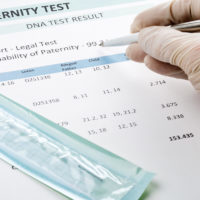Establishing Paternity As An Adult Child

New Jersey, like other states, has a system in place for establishing paternity. If the parents are married, then the husband is the presumed father. If the parents are unmarried, then the parents can jointly agree to paternity, or either the mother, the putative father, or the child (once capable of doing so) can take action to establish paternity. However, the law does not want the issue of paternity to be an open question indefinitely; paternity must be established within a certain number of years after the child is born. What if a person learns for the first time as an adult that they may have a different biological father? Or a presumed father paying child support learns that they were not the biological father after all? Do they have legal recourse, or has time run out? Read on for an explanation of how New Jersey handles establishing paternity as an adult, and contact a knowledgeable New Jersey paternity and divorce attorney for help with a New Jersey family law matter.
The general rule: Establish paternity by 23
New Jersey’s Parentage Act, codified at New Jersey Revised Statutes section 9:17-38, et seq., governs the process by which parties may establish paternity. The Parentage Act generally requires that an action to establish parentage must be brought within five years after the child reaches the age of majority, which is currently 18 in the State of New Jersey. The statute of limitations is thus 23 years from the birth of the child. Any interested party, including the mother, presumed father, putative biological father, or the child, can bring an action for paternity. In order to challenge the legal presumption of parentage (i.e., challenge that the mother’s husband is the father), the challenger must provide “clear and convincing evidence” of alternate parentage. Courts will often order a DNA test, depending on the timing of the claim and the other facts surrounding the case.
The unusual case: “Extraordinary circumstances” may toll the statute of limitations
In a case entitled R.A.C. v. P.J.S., the Supreme Court of New Jersey dealt with the unusual case where there was a compelling reason to visit paternity after age 23.
The case concerned a man, “Roy,” whose wife, “Bonnie,” had two children while they were married. Unbeknownst to Roy, Bonnie had been having an affair with the defendant, “Patrick,” at various times including when Roy’s son, Darren, was conceived. Having no reason to doubt Darren’s parentage, Roy raised Darren as a typical father would. Unrelated to the affair, the parties divorced when Darren was 11 years old; Bonnie had never disclosed the affair to Roy, and she did not bring it up at the divorce proceedings. After the divorce, Roy paid child support to Bonnie for Darren and paid for Darren’s college expenses, both as part of the divorce judgment and additional funds beyond those ordered by the court.
Years later, when Darren was 30, Roy learned for the first time that Darren was actually Patrick’s son. Roy filed an action against Patrick under the Parentage Act to establish paternity and to be reimbursed for child support provided to Darren. Patrick sought to dismiss the case as time-barred, given that Darren was well past 23.
The New Jersey Supreme Court ultimately ruled that the statute of limitations under the Parentage Act might be “tolled,” or paused, under certain extraordinary circumstances, but that the facts here did not warrant tolling. Statutes of limitations protect defendants from being open to potential actions forever; in this case, Patrick should be protected by the statute of limitations rather than go his entire life facing the possibility of this lawsuit. The Court noted that Patrick had good reason not to tell Roy about the affair, which could have destroyed Roy’s relationship with his son, whom he raised as any loving father would.
However, the Court also emphasized in a footnote that the case was about child support, not purely about establishing paternity. Had the action been about Darren compelling Patrick for a paternity test in order to determine, for example, whether Darren carried a genetic risk for certain medical conditions (Patrick’s family has a history of muscular dystrophy), then there would be sufficient extraordinary circumstances to bring a Parentage Act claim. Even though the Court ruled against the claim in this case, they left the door open for paternity actions well after a child reaches age 23 when the interested party had no reason to suspect paternity was in question.
Contact a New Jersey Family Law Attorney
If you’re in need of compassionate, experienced, and talented legal help with a divorce or paternity dispute in New Jersey, contact the Union offices of family law attorney John B. D’Alessandro at 908-964-0102.

